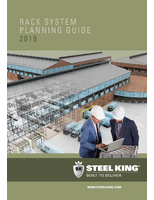Geosynthetics Standards aid material property quantification.
Press Release Summary:
Developed by ASTM International D35 on Geosynthetics, 2 new standards will aid national movement to develop mechanistic-empirical design guide for pavements. Both ASTM D7499, Test Method for Measuring Geosynthetic-Soil Resilient Interface Shear Stiffness, and ASTM D7556, Test Methods for Determining Small-Strain Tensile Properties of Geogrids and Geotextiles by In-Air Cyclic Tension Tests, cover quantification of fundamental material properties for pavement components.
Original Press Release:
New ASTM Geosynthetics Standards to Aid in Quantification of Material Properties for Pavement Components
W. CONSHOHOCKEN, Pa.-Two new ASTM International standards will aid in the recent national movement to develop a mechanistic-empirical design guide for pavements. The new standards, developed by ASTM International D35 on Geosynthetics, will each cover quantification of fundamental material properties for pavement components. The standards, ASTM D7499, Test Method for Measuring Geosynthetic-Soil Resilient Interface Shear Stiffness, and ASTM D7556, Test Methods for Determining Small-Strain Tensile Properties of Geogrids and Geotextiles by In-Air Cyclic Tension Tests, are under the jurisdiction of Subcommittee D35.01 on Mechanical Properties.
"ASTM D7499 and ASTM D7556 will eventually be used to determine interaction properties and tensile properties of geosynthetic materials that will be directly utilized in the design of geosynthetic-reinforced pavements," says Eli Cuelho, research engineer, Western Transportation Institute at the Montana State University, and a D35 member.
According to Cuelho, when geosynthetics are used to reinforce the base course layers of flexible pavements, two required main design parameters include the interaction between the geosynthetic and the surrounding aggregates, and the tensile properties of the geosynthetic. While these properties are typically determined using static or semi-static loading, the most relevant interaction tests use cyclic loads. The new standards will provide tests to quantify soil/geosynthetic interaction properties or tensile properties of the geosynthetic when subjected to cyclic loading.
Cuelho says that the most likely users of ASTM D7499 and ASTM D7556 will be commercial testing laboratories that will run the tests for manufacturers and designers from public transportation agencies or private consulting companies. All interested parties are encouraged to join in the activities of D35.01.
To purchase ASTM standards, visit www.astm.org and search by the standard designation number, or contact ASTM Customer Relations (phone: 610-832-9585; service@astm.org). ASTM International welcomes and encourages participation in the development of its standards. For more information on becoming an ASTM member, visit www.astm.org/JOIN.
ASTM International is one of the largest international standards development and delivery systems in the world. ASTM International meets the World Trade Organization (WTO) principles for the development of international standards: coherence, consensus, development dimension, effectiveness, impartiality, openness, relevance and transparency. ASTM standards are accepted and used in research and development, product testing, quality systems and commercial transactions.
View this release on the ASTM Web site at www.astmnewsroom.org.
ASTM Committee D35 Next Meeting: Feb 2-4, 2011, January Committee Week, Baltimore, Md.
Technical Contact: Eli Cuelho, Western Transportation Institute, Montana State University, Bozeman, Mont.; Phone: 406-994-7886; elic@coe.montana.edu
ASTM Staff Contact: Christine Basile, Phone: 610-832-9728, cbasile@astm.org
ASTM PR Contact: Barbara Schindler, Phone: 610-832-9603; bschindl@astm.org




